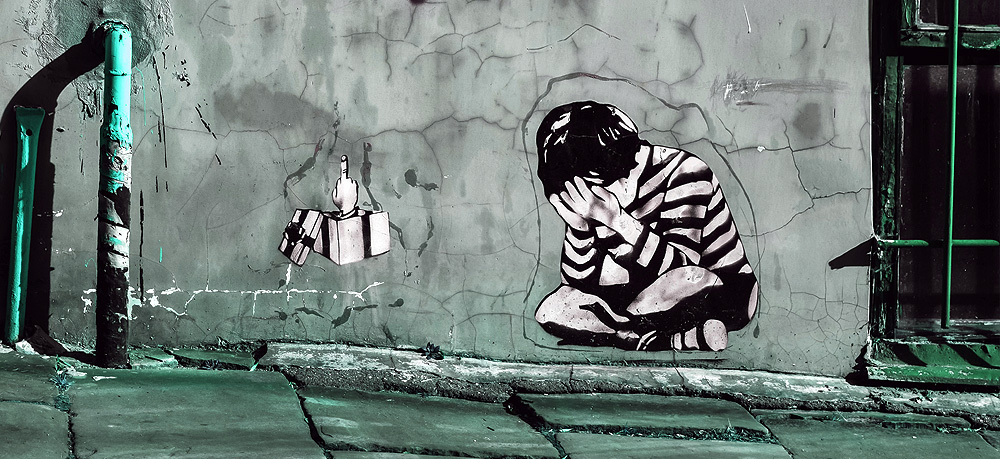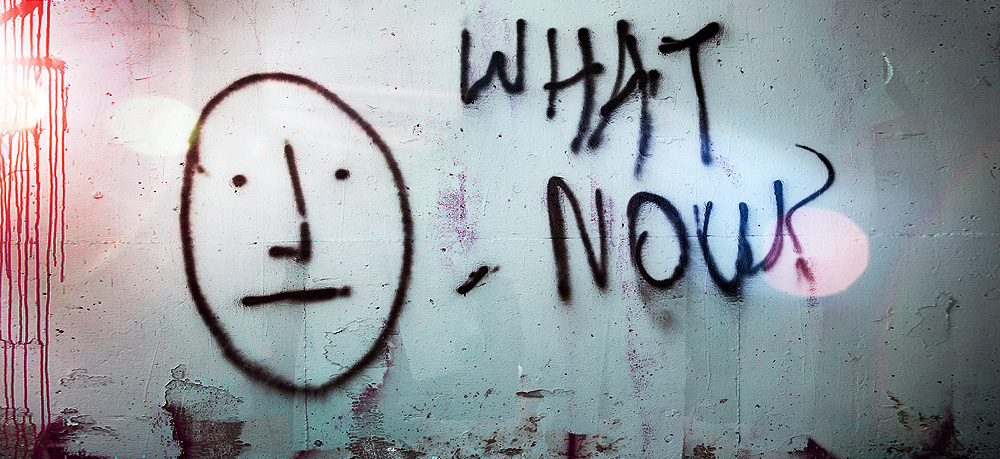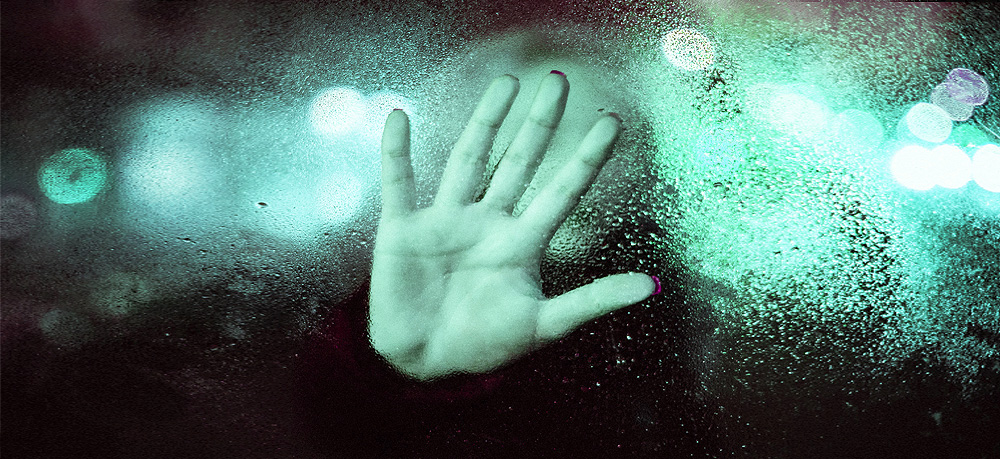Behind The Glass: Living Life In A Slow, Cruel, Self-Induced Purgatory
I feel like I’m behind the glass, knocking on a large, thick window. Sometimes impassioned, irate, wanting to shatter the pane and step through into what is ahead of me. More often, I just glance through and watch, pathetically defeated, with nothing to offer, barely even any anger or drive to stir up, let alone the vague threat of competence to offer the world. The world around me develops, grows, evolves and moves forward as I am stuck, able to see everything hurtling past me while feeling no part of it. I am watching my own stagnation. Observing and sensing the time pass, the hunger to learn fades, the endless possibilities slip away, and opportunities vanish into the distance, along with my ability to reach for them. It’s a slow, cruel, seemingly self-induced purgatory.
Apathy feels like an accidental blanket which I’ve used to mask real feelings, to cope, to dampen down any thoughts, ideas or emotions that are of real challenge, threat, or discomfort. This apathy is compounded by a lifetime of zealous comfort eating to further distance the unbearable. Very little tolerance has been built, insufficient character development where it’s needed and now as a man in my late 30s, I feel trapped, lost and frozen in this adolescent state of uncertainty and indecision. This arrested development shows itself regularly in my impatience, petulance, irresponsibility and the feeling of a constant impulsive itch for gratification and relief.
I heard someone talk about confidence and how it’s built by voluntarily pursuing experiences and placing yourself in situations of unfamiliarity and discomfort. In time, this exposure builds faith in your ability to navigate these unknown, choppy waters. You develop real substance, you’ve faced yourself and battled many imposing obstacles. To stay in and continue with what you’ve always felt comfortable and confident at, stifles real growth. Instead, a slow, unwitting act of complacency and self-deceit plays out, tricking your senses into the belief that you are developed and formidable. When in fact, you’re petrified and flailing when called outside what is familiar to you. The “confidence”, which has been instilled through nothing more than mindless repetition, rather than any genuine tangle with true challenge, leaves you with the harsh reality of confronting what you’re really made of. I feel I may have not just fallen into, but knowingly sought out this flimsier path to development and am now wrestling with the cost.
The evil you know versus the evil you don’t

Pain is a feeling that is familiar. But despite some noteworthy emotional growth in the last few years, I realise I’m also on the mindless repetition side of the confidence theory. My pride in my ability to absorb a thumping is seemingly misplaced. Usually, the sensation is a low-intensity ache, almost like being slowly gnawed at. Unless it’s a rare occasion of particular emotional agony, it doesn’t feel violent, or aggressive. The pain isn’t felt in slashes, hacking or stabbing sensations, it isn’t pummelling, it’s not impactful like kicks and punches, or frenzied savagery like being chewed by a school of Piranha. It’s a slow, quiet, incessant gnawing, almost happening in the background of my being somewhere. It’s an ache. An empty, hollow, void which pulses like a deep, unattended bruise. It’s intrusive enough to let me know it is there. And constant and uncomfortable enough to make me very driven to stifle and ignore it.
It’s maybe the emotional equivalent of an old impalement injury. It feels like it’s gone all the way through, and I’m now somewhat used to it, but never comfortable with it. It feels like this wound was inflicted a long time ago and widened and deepened as time went by. Events, incidents, losses, comments, failures, embarrassments, and regrets all added to the cavernous echo in my body. it’s very old, maybe even before my time. Maybe this is what they call generational trauma. A wound that lived in one or both of my parents, and maybe their parents before them. Or maybe it began forming inside me when I was too small and undeveloped to know or remember. It’s created a gaping corridor Somewhere in the centre of my body, that this ache lives in. When it comes to my attention and I feel it, it changes the way I breathe. Sometimes my breath is shallow, fearful and rushed. Sometimes, it’s restricted, held back and controlled. Other times heavy, sigh-like and grief-stricken.
As a being, a person who was in the womb of another and carried until arriving here. As someone who was born with a connection to at least one person who loved, cared for, worried about, nurtured and saw me, I. feel. Incomplete. Having neither of my parents here, family feels like I’m reduced from a connected being, with heritage, history, stories, memories, and belonging to a lonely tumbleweed. I am disconnected. Unrooted. No longer part of a place or lineage, carrying behaviours, traits and mannerisms of those I come from, obvious to those who would see us interact with one another. Now it is just my behaviour and they are just my traits and mannerisms. Apart from photos, the visible, detectable link to my parents is gone. As imperfect as they were and as challenging as things could be, I miss them.
During those extra quiet moments, the private moments, had alone – gazing out of a bus window, pausing almost trance-like staring at the middle distance. Lying in bed, in uneasy silence, softened, but also exacerbated, by the peaceful breathing of my partner sleeping next to me, I notice I can’t shake a resigned feeling in the fibres of my body, deeply pushed back into the far recesses of my mind, put simply; that I am fucked.
Trying to look forward from behind the glass

Fucked is vague and given that I’m alive, without any real life-changing diagnosis to contend with or any truly unsurmountable circumstances to negotiate, I cannot fully know how I am exactly fucked quite yet. But it feels almost genetic, worryingly decided. Whether it be physical, emotional, psychological, spiritual… I don’t know. But it feels written and promised and for as long as I can remember, always has been, gaining weight as time wears on. This might be the price of seeing two people, supposedly in love, share an agonising bond built on stilts, rather than solid, thought-out, agreed-upon foundations. A dynamic of systematic erosion instead of mutual support, respect and nurture of one another. Boundaries worn away, poor behaviour tolerated, excused and enabled. Recklessness and disrespect were daily norms and dominance, intimidation and threat were used to keep a precarious and discontented balance in the family. Maybe my own absence of hope, true, trusted hope, and a lack of vision of brighter outcomes fuels and shapes this worry.
There have been comments and insights from people over the years that have stayed with me. Many have been priceless in helping and guiding me more than I can describe. But some, inadvertently, have added density to this throbbing ache in my stomach. One was something said by a very impressive woman I knew, who commented, after confiding in her, about my father killing my mother, that the main psychological challenge in my life was to tussle with the idea that I am not my father. This was, I’m sure, a well-intended, well-aimed insight, designed to help and bring awareness. But it sits dauntingly close to the forefront of my mind, far away from the more comfortable, probably disassociated, distant edges. Especially in the heat of an argument, a cold, heart-sinking moment of failure, the panicked internal thrashing when I’m in fear, the devil-may-care shrug of self-sabotage, the ignorance of lazy judgment. There is a quiet voice that carries through the air, it always breezes its way into my ear from somewhere behind me and whispers “you’re just like your father.” In these moments, there is a dreadful sense of futility in resisting what feels hereditary. Knee-jerk recklessness, disregard and violence, if fancied or necessary, is the overwhelming cocktail that pumps through me. The hairs on the back of my neck always stand up and I tremble a little. It unnerves and disorientates me.
Maybe the cure here to not remain behind the glass is to get out of my head, out of myself and get out of my own way. Share, speak, find my voice, find my discomfort and cling to it. Cry. Cry in front of people, collapse, sob, clench my fists, shout and scream, purge. Maybe this thing I am choking on is supposed to be a gift for even one other person and keeping this… whatever it is, slow poison, in my own body and mind is the real issue. Maybe it’s what keeps my void from healing, closing and allowing a feeling of one day finding some sense of completion, within.
————————————————————————
Behind The Glass was written by Oisin Abell: “Churning out content (sporadically), burning inside (often), learning how to be content (when I can).”


